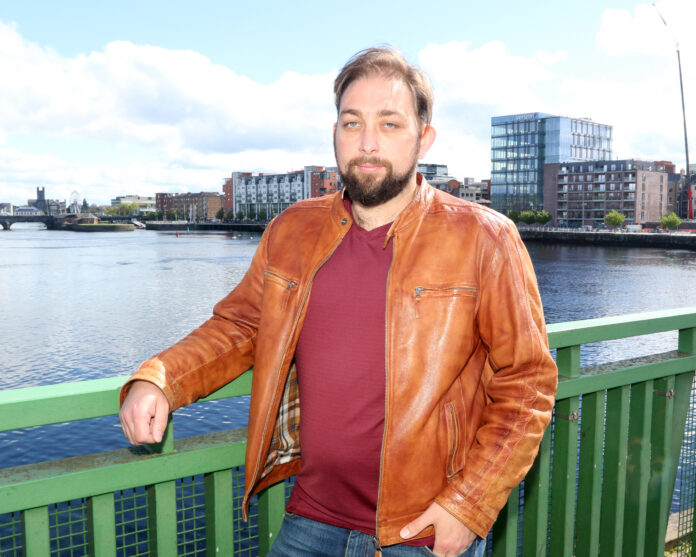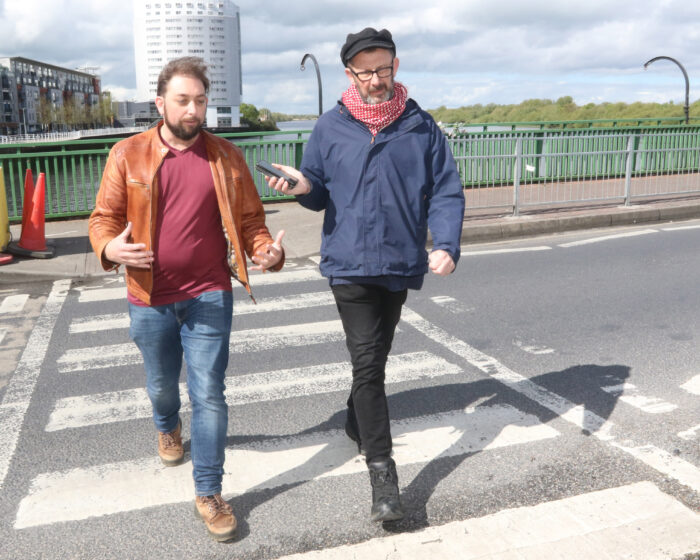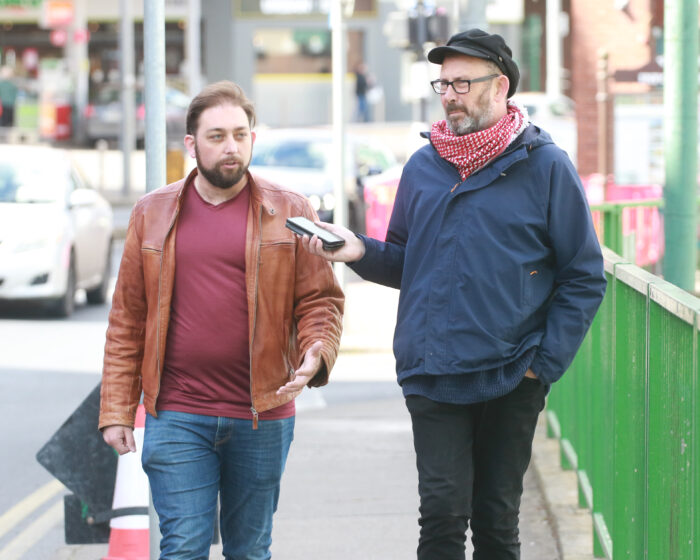
THE historic role of directly-elected mayor (DEM) could see Limerick build the foundations for a post-capitalist society that operates not for the international markets but on the needs of people and the planet.
That’s according to 32-year-old software engineer Ruairí Fahy, who believes that on June 7 next Limerick has a chance for change – a change, he says, that can only be won by people organising from bottom up.
The People Before Profit hopeful, also vying for a council seat for Limerick City North in the upcoming local elections, believes Limerick needs an “activist mayor”, who will live on a workers’ wage and be on the side of the people.
And even if the legislation for DEM doesn’t deliver, the role, he points out, will have the biggest mandate in the country for building new systems of local democracy.
“As we’ve said multiple times before, the legislation that they have given us is not really bringing a whole lot. It is more a lobbying position,” he tells the Limerick Post on a walk along the riverside.
“You’ve got people running for parties that have been in power for the last 100 years, Fianna Fáil and Fine Gael, that are saying there’s things they want to get done. If that’s the case, why were they not pushing it for the last 10 years?

Photo: Brendan Gleeson
“Both of them have been in power together for the last decade and then 100 years between the two of them together. We’re trying to change up the system as a whole and we’ve got a lot of stuff that can be done within the realms of the legislation itself. But there’s broader stuff we can do then with communities that you can find ways to leverage existing funds or government funds to try to build up communities.”
‘There’s no powers ever handed from the top down’
The Limerick activist hits out that the DEM legislation has delivered little more than shuffling the deck of existing powers and hiding the unelected executive further from accountability.
He would like to see the mayoral office give more power to the people of Limerick to control their future. This role, Mr Fahy suggests, should undo the damage done by being the “dumping ground for dirty industries and an afterthought in a development policy that only focuses on the expansion of Dublin”.
The PBP canidate says he believes in the role, but “ultimately, a lot of those powers are very weakened”.
“There’s a limitation by the government itself where pretty much anything you want to do, if you want to go and change the budget, if you want to go change the medical plan, those are set at a national level. So, you can advocate for whatever you want but things won’t change without people pushing against it.”
He hit out that “there’s no powers ever handed from the top down”.
“That’s why I wanted to take a walk over to the Cleeves site today,” he tells me. “That was the site of workers standing up for themselves. We had the British stopping us going across the river there to work in the morning, taking hours out of our day to be checked, and then you had a general strike in the city as a result against British occupation. But then as a whole it showed we can run the place ourselves. They showed they could for two weeks.”

The housing problem
People Before Profit has called for the eviction ban to be brought back, for vulture funds to be outlawed, to serve compulsory purchase orders on long-term vacant properties, and to establish a State building company to work with councils to build thousands of social and affordable homes.
With many of Ruairí’s own generation, and indeed many of his close friends forced to leave Ireland, it pushed him into an activism role to speak out for young people squeezed further out of home ownership. He deems the current government housing policy a “disaster”.
“We were helping people fight evictions around Covid and from that I got more and more involved in politics. You can’t really tackle the housing crisis without massive change in how we deal with building houses and how we deal with allocation of houses,” he says.
“I have seen so many people struggle, and when you see your friends having to emigrate, I don’t want to stand by and see this happen again. You have landlords using tenants, breaking laws left, right, and centre around rent pressure zones. How can we allow this to continue?”
Hitting out at the current establishment, Ruairí says that “we have TDs and members of the council executive who are landlords, and even people who are running for election. We got interest rates going up, you got people with an extra €600 a month coming out of their pocket, and we are lucky at the moment that we haven’t entered into a recession.”
‘Limerick led the way back in 1919’
Building up a head of steam, he went on to call out the government on its housing policies, saying that “this government needs to go”.
“Their obsession with letting the market solve problems and keeping all developments ‘off balance sheet’ has made homes unaffordable for the majority of working families to rent or own while people are waiting over a decade before they finally get offered a home.
“We have hundreds of empty council houses in Limerick needing more and more work the longer they’re left idle. These need to be returned to use and the new mayoral budget needs to get the rusty panels off buildings and move families in.”
The DEM candidate believes that we can have a proper functional society by giving people a safe and secure place to live as opposed to a “neo-liberal model”.
“This view that if we give people a place to live, if they feel safe and secure, they’re not going to go to work is ridiculous. Most people want to help out, they want to be part of society, they want to do their bit. We need to ensure people are in a position to do that. That’s something that the directly-elected mayor has a role in to bring about those changes,” he says.
“We’ve had 100 years of the same and it is time for some socialist change. Limerick led the way back in 1919 and it’s time for us to do it again in 2024.”










